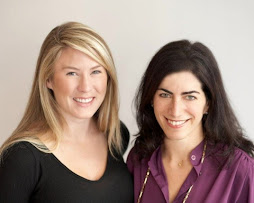
We were thrilled when Eden Abrahams of Clear Path Executive Coaching approached us nearly two years ago with the hope of using In Good Company as research site for her Masters’ Thesis. She was interested in looking at the process of “becoming an entrepreneur” for women.
We are so pleased that her results support the importance of peers, as this was obviously our entire premise and hope in starting In Good Company Workplaces back in 2007. Further, her study shows that safe space, collegial relationships, peer learning and truth speaking all seem to be critical elements in the process of “becoming an entrepreneur”.
Thanks to Eden for sharing the results with us. More about the research can be found on her website, in addition to an excerpt of findings listed below.
****
From “A Room with a Crew: How Coaching and Peer Support Are Experienced by First-Time Entrepreneurs”:
Three new and noteworthy findings also emerged from this study:
1. The normalization of negative feelings related to agency, including isolation and inadequacy, is one of the most important takeaways that participants gained from their association with In Good Company peers.
* The ability to see one’s struggles in the context of a universal reality (i.e., these are obstacles that most entrepreneurs routinely encounter in the early stages of building their businesses) rather than as failures due to individual shortcomings, is extremely difficult to do in isolation.
* Without access to peers, mentors or coaches who have first-hand experience with the situation and / or emotional state an entrepreneur is facing, or at least an awareness of typical elements of the entrepreneurial experience, a core ingredient in the “normalization” process is missing.
2. Both formal and informal peer-to-peer coaching interactions have the potential to foster significant – possibly transformational – learning, which is often a powerful catalyst for professional development.
* In Good Company initially appealed to all six study participants as a solution to largely practical problems (e.g., the need for affordable office space and network expansion opportunities), but became something much more vital and affirming, largely on the strength of their affinity for and relationships with other women in the community. Participants’ interactions with other members, both casual and structured, helped them to acquire tangible knowledge, skills, behaviors and new contacts that they considered valuable from a bottom-line perspective.
* Work occupies a central place in adult life and in shaping individuals’ identities. Supportive, information-rich professional environments, where individuals can safely experiment with new behaviors while observing and selectively emulating their peers, help to strengthen and reinforce professional identities that are newly emergent or still in flux.
****
We are so excited that this research mirrors our experience and hypothesis. Too often we find that women who have decided to work for themselves end up working by themselves. We believe that there is no reason to go it alone or reinvent the wheel. Peers and collaboration are the keys to success!
posted by Adelaide Lancaster








